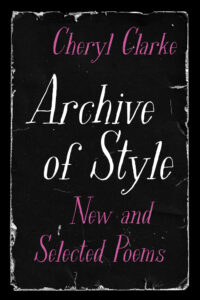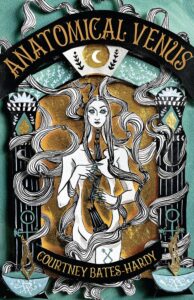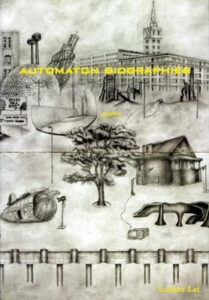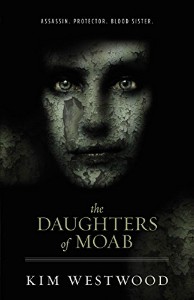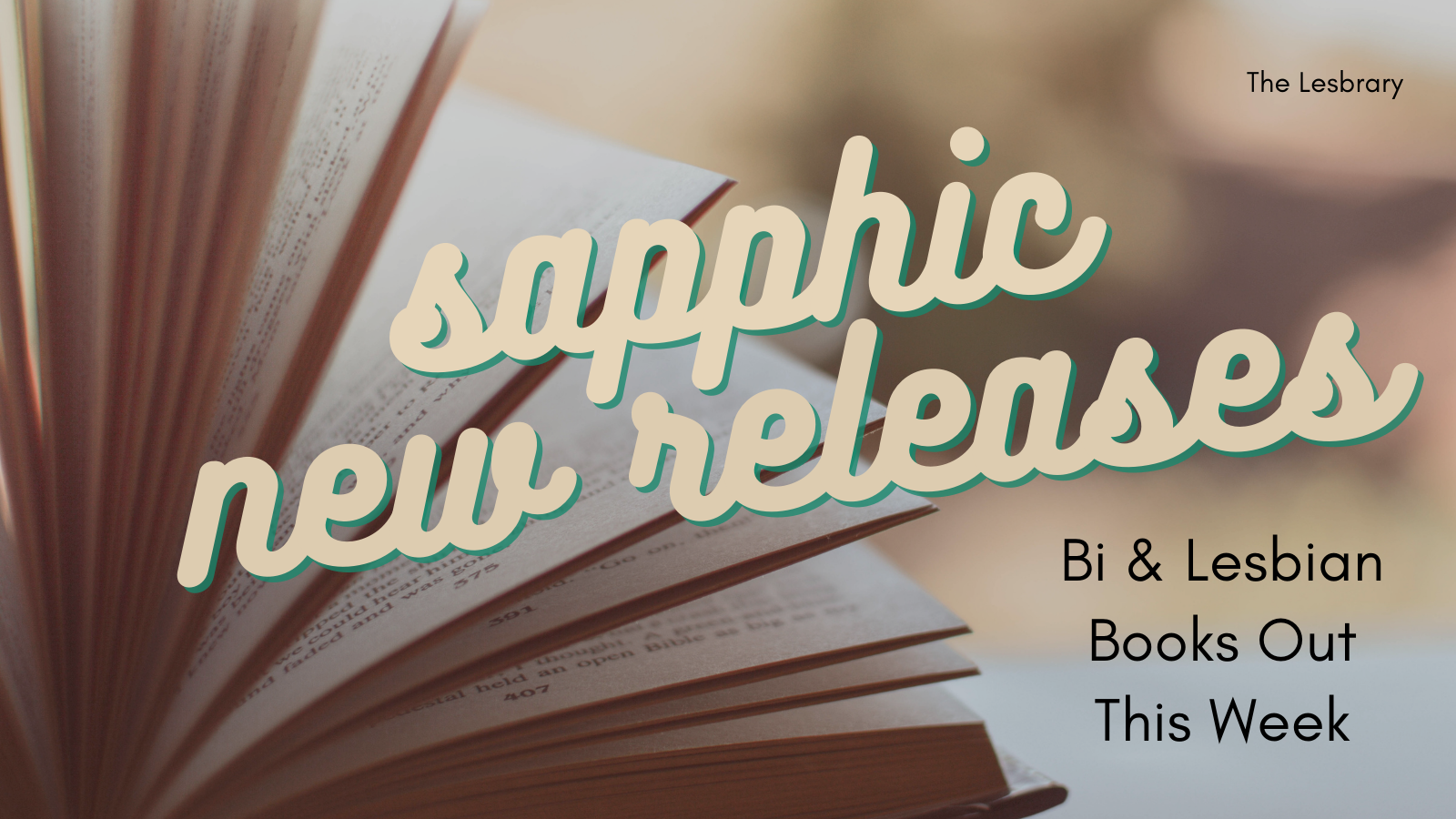It can be easy to feel overwhelmed during trying times, and to feel like you have less time/energy to sit down with a book and really immerse yourself in plot or nonfiction. I’ve personally always turned to poetry during periods like this, and in light of everything going on everywhere, these books have been particularly meaningful reads.
So, half a year to and from National Poetry Month, here are three collections by queer women that are very apt in the ways they unravel embodied tangles of historical/ongoing violence to fiercely reassert an enmeshed bodily and narrative autonomy.
Archive of Style: New and Selected Poems by Cheryl Clarke
Cheryl Clarke was a fixture of the 80s and 90s lesbian literary scene, and has lost little of her verve in the ensuing decades. A number of the poems in her 2024 collection Archive of Style render queer desires that are both exquisitely specific to her era and remain timelessly resonant. The book is a retrospective spanning 40 years of craft and is an excellent entry point for anyone looking to start with her work, or American lesbian poetry in general. Whether it’s tender, observant odes to butch-femme dynamics or unmitigated fury at the loss of Black lives to systemic violence, Clarke does not hesitate to put names and personalities to her poems.
Personality is probably the strongest part of Clarke’s poems, here. They feel alive. Her sense of wit and humor infuses nearly each page with a genuine love for rhythm and sound. The poems can be tasted, their syllables filling your mouth when you say them aloud. Even when steeped in fury and frustration, they can be read again and again.
Because it is not all fun lesbian reminiscences (there’s more of those earlier in her career and later in the book). This collection is as much an archive of the history she has lived through, of the people and stories that seem to fade from national memory when they fade from national media cycles, as it is a record of the evolution of her own personal style. While Clarke’s record of the violence against Black bodies is grimly poised to be as relevant in the near future as it has been for most of North America’s written past, it is her insistence using her command of language to shine a loving, impassioned light on the experiences of her communities that makes it truly timeless. You’d learn more about America in the 90s and 21st century from this collection than most public high school textbooks, if we’re being honest.
I recently ditched a bad date and took myself to DC’s Museum of African American History and Culture. Wanting to forget even the phantom sensations of those demanding fingers on my skin, I ended up in an five story building dedicated to remembering both the trauma and triumph of memory. It would be an apt comparison to consider Archive of Style a slim, more portable edifice with similar intentions in mind – which it achieves repeatedly.
Anatomical Venus by Courtney Bates Hardy
I started Courtney Bates Hardy’s latest collection all too aware of the ways modern medicine demands the evisceration of femme bodies and minds, in ways palatable/appealing to the aesthetic sensibilities of those who wield the prescription pad. These autobiographical poems focus on the aftermath of a car accident that left the author with disabilities and chronic pain, and her attempts to contextualize her experiences through history, mysticism and pop culture. My favorite part was reading her skill with small details and descriptions. Reading really novel descriptions of mundane things made this collection was a delight even when I felt like crying at times.
The poems in Anatomical Venus will feel deeply familiar to anyone who has run the gauntlet of feeling medically monstrous. Bates Hardy captures the feeling of walking the fine line between being in pain and being a pain in the eyes of others, and the ways this dual consideration can burden people when trying to access care. I loved how she also portrayed the beauty of being with people who really do care and whose compassion can offer its own type of healing, though the majority of poems were more of a reckoning with the ways reality and meaning are shaped by culture.
It can often feel objectifying to lay yourself bare before a healthcare provider, to feel like one of those historical wax sculptures, being poked, prodded and pulled apart with either clinical remove, morbid curiosity, or some uncomfortable combination of the two. It can alienate you from your own body. But in writing this collection, and revealing these raw emotions on the page, Bates Hardy is reclaiming the act of voicing one’s pain, prioritizing her subjectivity throughout.
The poets and artists who wrote the inside blurbs compare her poetry to surgery when noting its precision, skill and medical themes. So I, a scientist (in training) will compare this collection to art in its use of visual symbols to evoke specific contexts of feeling, and to convey a aching depth rooted in the specific cultural context with shared understanding of those symbol— and along with them, similar experiences of suffering and struggle.
Automaton Biographies by Larissa Lai
Larissa Lai’s Automaton Biographies is a tour through the language of tactility. It is a furious physical record of the fluid edges of bodies in constant, open interface with the world around them.
It was also a revelation when I first came across it in college. This poetry collection was one of the first printed works I read on the literal objectification of women’s bodies in science/fiction, examining the conflation of machines with progress and scientific data with personhood—and the limitations, risks and dangers that come from such confusion.
The movie that inspired this collection (and decades of research on both techno-orientalism and the techno-objectification of women), is another entry in a long line of movies where the female characters’ humanity (and by extension, audience sympathy for their struggle) is largely, if not entirely, defined in relation to white male desire and their ability to perform for it in order to secure their freedom and identity. Larissa Lai rejects this script, focusing instead on the contexts generational trauma, gendered performance, and the biases of late capitalist bioscience add to the sum of a person’s sense of embodiment—and how these can act as sites for connection and empathetic recognition.
In her poems, the space race, animal experimentation, weapons of war and national borders are all interrogated for how they shape our understandings of who and what is considered to merit personhood by virtue of deserving—if not empathy—at least recognition as “like us”. Framed from the perspectives of both the (presumably) empowered and the disempowered, Lai’s poetry reveals how both statuses are temporary and prone to slippage.
Revisiting this collection now, in this era of fast fashion and faster turnarounds for cosmetic procedures or trends that try to sell us mechanized, mass-produced “perfection” masquerading as science, the heavy emotions that shoot through each of Lai’s staccatto lines only grows more immediate and resonant. In a late capitalist society built on unsustainable exploitation and the objectification of labor*, her writing vehemently, emotionally, intentionally insists on the importance of softness, of biocellular temporal and physical frailty in a world of the rigid, the aspiring-to-immortal, the unyielding metal-plastic-market-standard.
Can’t get enough queer women poetry? Check out Lesbian Poetry: Because it Didn’t End with Sappho and our other reviews of queer women poetry books.
